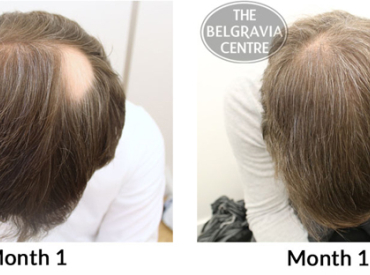-
Male Hair Loss Conditions
- Male Pattern Hair Loss
- Other Conditions
-
Male Hair Loss Treatments
- Hair Loss Treatments – A Guide
-
Patterns of Hair Loss
- Receding Hairline
- Thinning Crown
- General Thinning
-
Hair Loss Success Stories
- Hair Regrowth Photo-Gallery
-
Female Hair Loss Conditions
- Hair Loss in Women - Guide
- Female Pattern Hair Loss
- Telogen Effluvium (TE)
- Diffuse Thinning | Chronic TE
- Alopecia Areata
-
Female Hair Loss Treatments
- Female Hair Loss Treatments - A Guide
- Belgravia High-Strength Minoxidil
- Hair Vitalics For Women
- Clinical Treatment Therapy
-
Hair Loss Success Stories
- Women’s Hair Regrowth Photo-Gallery
-
Back
-
Male Hair Loss Conditions
- Male Pattern Hair Loss
- Other Conditions
-
Male Hair Loss Treatments
- Hair Loss Treatments – A Guide
-
Patterns of Hair Loss
- Receding Hairline
- Thinning Crown
- General Thinning
-
Hair Loss Success Stories
- Hair Regrowth Photo-Gallery
-
Back
-
Female Hair Loss Conditions
- Hair Loss in Women - Guide
- Female Pattern Hair Loss
- Telogen Effluvium (TE)
- Diffuse Thinning | Chronic TE
- Alopecia Areata
-
Female Hair Loss Treatments
- Female Hair Loss Treatments - A Guide
- Belgravia High-Strength Minoxidil
- Hair Vitalics For Women
- Clinical Treatment Therapy
-
Hair Loss Success Stories
- Women’s Hair Regrowth Photo-Gallery
Depression in People with Alopecia Areata May Be Molecular
A substantial number of study findings were published in 2019 which linked the hair loss-causing autoimmune disorder Alopecia Areata (AA) to depression.
The highly visible nature of these hair loss conditions, which can cause anything from bald spots on the scalp to complete baldness from head to toe, was thought to contribute to the psychological and emotional difficulties of those affected.
In January 2019 it was also found that, not only is depression more common in people with Alopecia Areata, but having depression may significantly increase the risk of developing alopecia.
On 2nd January 2020, in Scottish research findings published in the British Journal of Dermatology, two specific molecules - type 17 and type 2 cytokines - were shown to exhibit positive correlations with both Alopecia Areata and depression.
Dysregulation in systemic type 17 and type 2 cytokines
These researchers wanted to explore the link between mental health and Alopecia Areata, reasoning that, "Unfortunately, 60 per cent of people with AA will also develop depression, anxiety or a related condition."
Their primary aims were to find out whether people with Alopecia Areata had different levels of molecules that had been produced by the immune system in their blood. Previous research into other autoimmune diseases, such as rheumatoid arthritis, has made connections between molecules produced by immune cells and depression.
When comparing their clinical results to those of people without Alopecia Areata, the team discovered "increased levels of multiple molecules that are produced by activated immune cells" in the Alopecia Areata group.
Complex questionnaires were then used to establish depression scores for both the participants with Alopecia Areata, and those without. When using both sets of data to establish if there was a connection between these molecules and the depression some of the AA participants had, two specific molecules stood out. These were systemic type 17 and type 2 cytokines which were notably elevated in those with AA and these levels being associated with how depressed the individual was.
As such, the team concluded: "Alopecia Areata is characterized by dysregulation in systemic type 17 and type 2 cytokines, which may contribute to disease‐associated psychological morbidity."
Research part-funded by Alopecia UK
Their studies were funded by a PhD studentship grant from Medical Research Scotland, part funded by the pharmaceutical company AstraZeneca, with additional funding from the hair loss charity, Alopecia UK.
Alopecia UK is the biggest charity in the country that is dedicated to supporting those with medical hairloss. In addition to providing online resources, running local peer support groups and running many events where people who are affected by any form of Alopecia Areata - or their friends and family - can get together, it also funds research into the condition.
It is hoped this new information will help to further the medical community's understanding of autoimmune alopecia and its relationship with depression and other mental health problems, and be of use to those developing new Alopecia Areata treatments.

The Belgravia Centre
The Belgravia Centre is a world-renowned group of a hair loss clinic in Central London, UK. If you are worried about hair loss you can arrange a free consultation with a hair loss expert or complete our Online Consultation from anywhere in the world for home-use treatment.
View our Hair Loss Success Stories, which includes the world's largest gallery of hair growth photos and demonstrates the level of success that so many of Belgravia's patients achieve.


